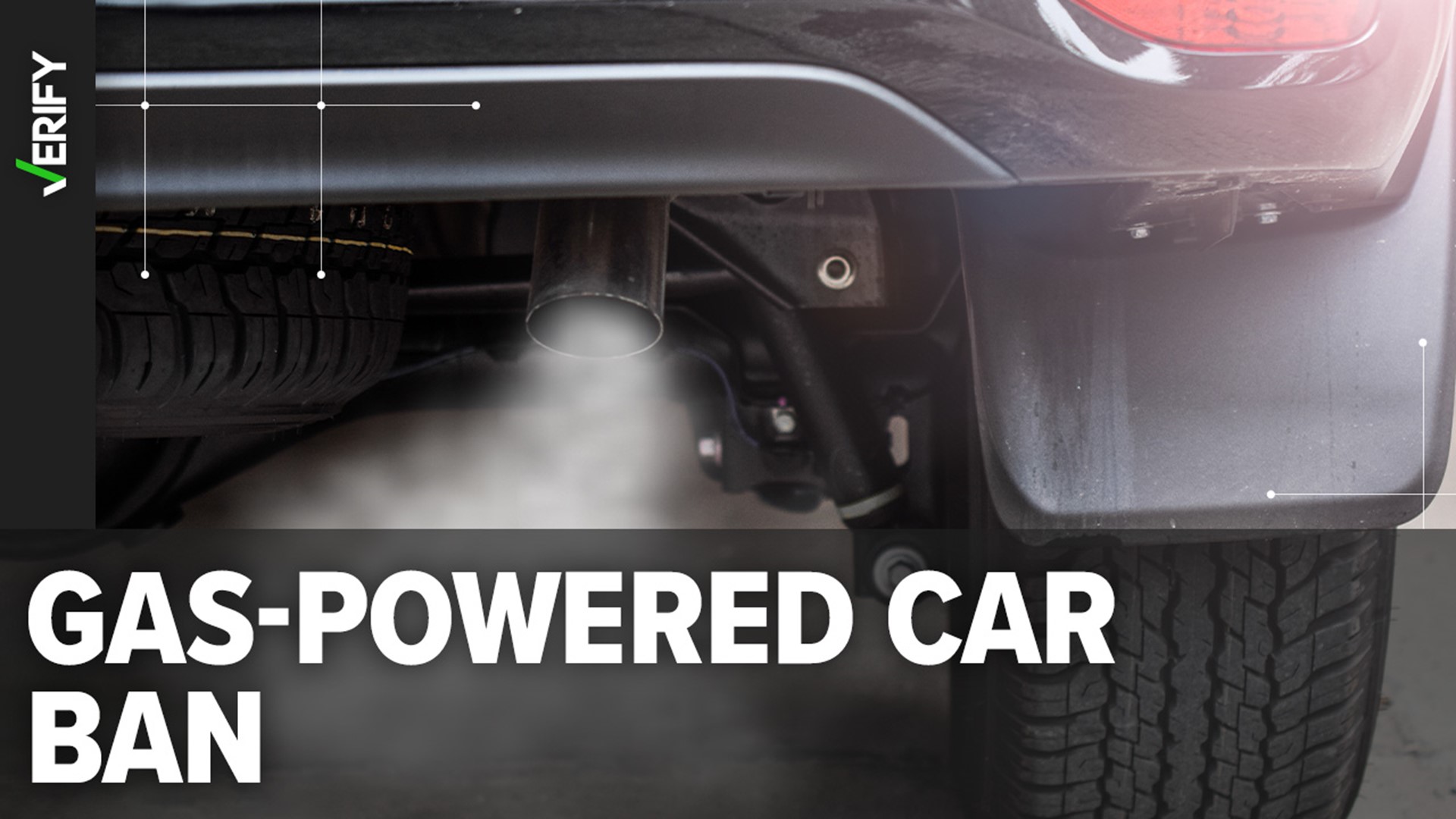Some states and municipalities have taken more aggressive action to combat climate change than the federal government. One common target of these measures is the gas-powered car, which contributes a significant portion of the greenhouse gases emitted every year.
One reader texted VERIFY to ask how gas-powered car bans impact people who already drive gas cars.
THE QUESTION
Do gas car bans force people to give up their cars?
THE SOURCES
THE ANSWER
No, gas car bans don’t force people to give up their cars. A dozen states are banning the sale of all new gas cars over the next 12 years, but that doesn’t impact gas cars already on the road or the ability to drive them.
WHAT WE FOUND
At least a dozen states are adopting versions of a rule that bans the sale of new gas-powered cars by 2035. This law doesn't affect gas cars already on the road, the sale of used gas cars or new registrations of gas cars.
The ban, called the Advanced Clean Cars II rule, requires carmakers to increase the percentage of their car sales that are “zero emissions” over the next decade, the California Air Resources Board (CARB) says. The rule says that by 2026, 35% of new cars sold must be zero-emission and by 2035 that number must be 100%. Zero-emission vehicles include plug-in hybrid, full battery-electric and hydrogen fuel cell vehicles.
CARB, which wrote the regulation, says it applies to automakers and only covers new vehicles. It does not apply to car dealers and does not impact existing gas cars already on the road, “which will still be legal to own and drive.” According to the Rhode Island Department of Environmental Management, used car sales will not be affected, either, and the state’s department of motor vehicles will continue registering gas-powered cars.
The states that have adopted or are in the process of adopting this rule as of May 12, 2023, are California, New York, Oregon, Washington, Vermont, Virginia, Rhode Island, New Jersey, Massachusetts, Connecticut, Delaware and Maryland.
All 12 states are adopting the same rules that restrict new vehicle sales without banning individual ownership of gas cars. No state can make the rule more restrictive unless California does it first.
The Clean Air Act forbids all states, except California, from adopting their own emissions standards for new cars. California may apply for a waiver to create its own standards from the Environmental Protection Agency (EPA), which the EPA says is usually granted.
Once California has adopted new standards, other states are allowed to adopt those same rules either wholly or partially. One example of a state that has only partially adopted California’s rules is Colorado. Colorado is adopting California’s new standards up until 2032, when 80% of new cars sold are required to be zero-emission.

